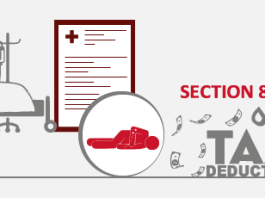Decoding EPO Insurance: Your Guide to Exclusive Provider Organization Plans
In the ever-evolving landscape of healthcare, understanding your insurance options is paramount. Exclusive Provider Organization (EPO) insurance is one such choice that’s gained prominence. In this comprehensive guide, we’ll unravel the intricacies of EPO insurance, shedding light on how it works, its advantages, limitations, and how to make the most of this healthcare plan.
What is EPO Insurance?
Exclusive Provider Organization (EPO) insurance is a unique healthcare plan designed to offer a balance between affordability and comprehensive coverage. Here’s a closer look at what defines EPO insurance:

EPO insurance
Definition:
EPO insurance, or Exclusive Provider Organization insurance, is a type of health insurance plan that provides coverage exclusively through a specific network of healthcare providers and facilities. Unlike Health Maintenance Organizations (HMOs) and Preferred Provider Organizations (PPOs), EPO plans offer distinct features that appeal to many individuals and families.
Features:
Provider Network:
EPO plans have a designated network of healthcare providers, including doctors, hospitals, and specialists. To receive maximum coverage, it’s essential to seek care within this network.
No Referrals:
Unlike HMO plans, EPOs typically do not require referrals from a primary care physician (PCP) to see a specialist. This direct access can be advantageous for those seeking specialized care.
Cost Control:
EPO plans often feature lower premiums compared to PPOs, making them an attractive option for budget-conscious individuals. Additionally, EPOs may have predictable out-of-pocket costs, providing financial stability.
How EPO Insurance Works
To truly grasp the value of EPO insurance, it’s essential to understand how it functions within the healthcare ecosystem:
Network-Based Care:
EPO plans operate on the premise of a network. This network consists of hospitals, doctors, specialists, and other healthcare providers who have a contract with the insurance company. When you enroll in an EPO plan, you gain access to this specific network.
Out-of-Network Coverage:
Typically, EPO plans do not cover out-of-network care except in emergencies. This means that for non-emergency care, it’s crucial to receive treatment within the designated network to maximize your benefits.
No Referrals:
EPOs do not require referrals to see specialists. This means you have the flexibility to schedule appointments directly with specialists without the need for a primary care physician’s referral, offering convenience and efficiency.
Cost-Sharing:
EPO plans often involve cost-sharing arrangements, including deductibles, copayments, and coinsurance. These arrangements determine how much you pay out of pocket for healthcare services within the network.
Emergency Care:
While EPO plans primarily focus on network-based care, they do cover emergency services, even if they occur outside the network. This ensures you receive prompt medical attention in critical situations.
Advantages of EPO Insurance
Exclusive Provider Organization (EPO) insurance comes with several advantages that appeal to various individuals and families:
Lower Premiums:
EPO plans often feature lower monthly premiums compared to Preferred Provider Organization (PPO) plans. This can be particularly advantageous for those looking to manage their healthcare costs effectively.
Predictable Costs:
EPO plans typically have fixed, predictable out-of-pocket costs for in-network care. This predictability can help individuals plan their healthcare expenses more efficiently.
No Referrals:
The absence of a referral requirement means you can consult specialists directly, saving you time and potentially expediting your access to specialized care.
Comprehensive Coverage:
EPO plans offer comprehensive coverage for services within the network. From preventive care to specialist consultations, you can expect a wide range of medical services to be covered.
Network Quality:
EPO networks often include reputable healthcare providers and facilities. This ensures that you receive care from experienced professionals and leading institutions.
Limitations of EPO Insurance
While EPO insurance boasts numerous benefits, it’s essential to be aware of its limitations:
Network Restrictions:
EPO plans strictly limit coverage to services obtained within the network. Seeking care outside the network may result in little to no coverage except for emergencies.
No Out-of-Network Coverage:
With the exception of emergency situations, EPO plans typically do not provide coverage for out-of-network care. This can be a drawback for individuals who require specialized care from providers outside the network.
Limited Geographic Coverage:
EPO networks may have geographic limitations. If you frequently travel or reside in areas where the network is not robust, you may face challenges accessing in-network care.
Cost-Sharing:
While cost-sharing arrangements can offer predictability, they still require individuals to pay a portion of their healthcare expenses. Deductibles, copayments, and coinsurance can add up.
Understanding the Network:
It’s crucial to thoroughly understand the EPO network, including which healthcare providers and facilities are included. This helps you make informed decisions about your healthcare.
How to Choose the Right EPO Plan
Selecting the right Exclusive Provider Organization (EPO) plan is crucial for ensuring that it aligns with your healthcare needs and preferences. Here are essential considerations:
Network Size:
Evaluate the size and coverage of the EPO network. Ensure that the plan includes healthcare providers, hospitals, and specialists you may need in your area.
Provider Choice:
Review the list of in-network providers and check if your preferred doctors or specialists are part of the network. Confirm that the plan offers access to the healthcare professionals you trust.
Cost Assessment:
Understand the cost-sharing elements of the plan, including deductibles, copayments, and coinsurance. Calculate how these costs align with your budget and healthcare usage.
Geographic Considerations:
If you travel frequently or have multiple residences, consider how the EPO plan’s network aligns with your geographic locations. Ensure you have access to in-network care where you need it.
Healthcare Needs:
Assess your specific healthcare needs. If you have ongoing medical conditions or anticipate the need for specialized care, verify that the plan covers those services.
Emergency Coverage:
While EPO plans focus on network-based care, they do provide emergency coverage outside the network. Review the plan’s emergency services policy for peace of mind.
FAQs to EPO Insurance:
FAQ 1: What is EPO insurance, and how does it differ from other health insurance plans?
Answer: EPO insurance, or Exclusive Provider Organization insurance, is a type of health insurance plan that provides coverage exclusively through a specific network of healthcare providers and facilities. Unlike HMOs and PPOs, EPO plans offer distinct features such as no referral requirements and predictable in-network costs.
FAQ 2: Can I see a specialist without a referral in an EPO plan?
Answer: Yes, EPO plans typically allow you to consult specialists directly without requiring a referral from a primary care physician (PCP). This direct access can be advantageous for those seeking specialized care.
FAQ 3: What are the advantages of EPO insurance compared to other plans?
Answer: EPO insurance offers several advantages, including lower premiums, predictable in-network costs, no need for referrals to see specialists, and comprehensive coverage for in-network services.
FAQ 4: Are there limitations to EPO insurance that I should be aware of?
Answer: Yes, EPO plans have limitations. They strictly limit coverage to in-network services, except for emergencies. Seeking care outside the network may result in little to no coverage. It’s important to understand these restrictions.
FAQ 5: How does cost-sharing work in EPO insurance?
Answer: Cost-sharing in EPO plans includes deductibles (the amount you pay before insurance coverage begins), copayments (fixed amounts for specific services), and coinsurance (a percentage of the cost you share with the insurer).
FAQ 6: Are EPO plans suitable for individuals with chronic conditions?
Answer: EPO plans can be suitable, but it’s essential to ensure that your preferred healthcare providers and necessary specialists are part of the plan’s network. Adequate network coverage is crucial for managing chronic conditions.
FAQ 7: Can I switch from one EPO plan to another during open enrollment?
Answer: Yes, during open enrollment, you can explore different EPO plans and switch to one that better meets your needs. This allows flexibility in choosing the most suitable plan for your healthcare needs.
FAQ 8: What happens if I require out-of-network care in an EPO plan?
Answer: EPO plans typically do not cover non-emergency out-of-network care. If you choose to receive care outside the network for non-emergencies, you may be responsible for the full cost.
FAQ 9: Are EPO networks geographically limited?
Answer: EPO networks may have geographic limitations, so it’s essential to ensure that you have access to in-network care where you need it. This consideration is especially important for individuals who travel frequently.
FAQ 10: How can I determine if my preferred healthcare providers are part of the EPO network?
Answer: You can check with your insurance provider or visit their website to access a directory of in-network healthcare providers. This directory will help you verify if your preferred doctors and specialists are part of the network.
Conclusion
In conclusion, Exclusive Provider Organization (EPO) insurance offers a balance between affordability and comprehensive coverage for healthcare needs.When choosing the right EPO plan, carefully consider factors such as network size, provider choice, cost-sharing, and your specific healthcare needs. By making an informed decision, you can ensure that your insurance aligns with your health goals and financial situation



